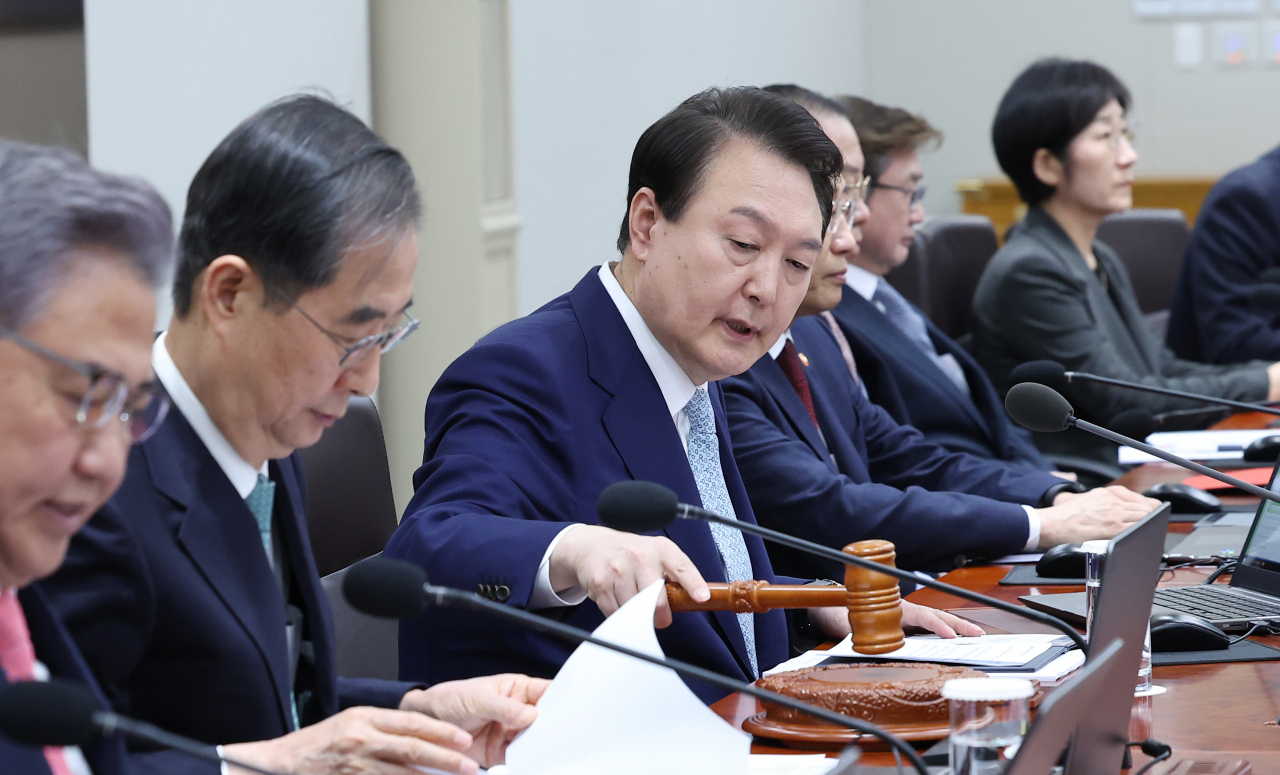 |
President Yoon Suk Yeol presides over a Cabinet meeting held at the presidential office in Seoul, Tuesday. (Yonhap) |
South Korea's national debt is growing at an alarming pace, posting a record high of over 1,067 trillion won ($811 billion) last year, the Finance Ministry said Tuesday.
The country’s debts – the amount owed by central and provincial governments, excluding state and public bonds owned by national institutions such as the National Pension Service -- came to a record 1,067.7 trillion won last year, according to a report on the 2022 national settlement of accounts approved at a Cabinet meeting.
South Korea has been seeing a continuous climb in its national debt. The figure has been increasing by around 100 billion won every year, surpassing 600 trillion won in 2016, 700 trillion won in 2019, 800 trillion won in 2020 and 900 trillion won in 2021.
The amount translates to about 20.68 million won in debt per capita for the country, based on an estimated population of 51.6 million last year. The debt per capita was up 1.92 million won from the year before.
With a record high national debt, the debt to GDP ratio has nearly hit 50 percent, reaching 49.6 percent last year. The figure has been on a continuous increase set at 47 percent in 2021 and 43.8 percent in 2020.
Meanwhile, the country’s liabilities -- which encompasses financial obligations such as estimated deficits -- posted an all-time high of 2,326.2 trillion won in 2022, up 130.9 trillion won from a year before.
The consolidated fiscal account logged a deficit of 64.6 trillion won last year, widening by 34.1 trillion won from a year ago. The managed fiscal balance, excluding the social security funds balance, posted a deficit of 117 trillion won, up 26.4 trillion won from 2021.
The state’s assets totaled 2,836 trillion won last year, down 29.8 trillion won from 2021. This was the first time for the asset to decrease since the national settlement report was filed since 2011.
The ministry explained this was from the decrease in liquid invested assets owned by public pension funds such as the National Pension Service, as they recorded appraised losses due to the sluggish economy.
After the national settlement, the country will have as much as 2.8 trillion won in available funds that can be used to draw up a potential extra budget without requiring approval from the National Assembly.
"The government will reflect the 2022 settlement when drawing up the budget for next year, preventing moral hazard and budget leaks, such as giving out imprudent cash grants,” Chung Hee-kab, head of the Fiscal Management Bureau of the Finance Ministry, said during a press briefing held Monday.
The report will be submitted to the National Assembly by end-May after a review by the Board of Audit and Inspection of Korea.







